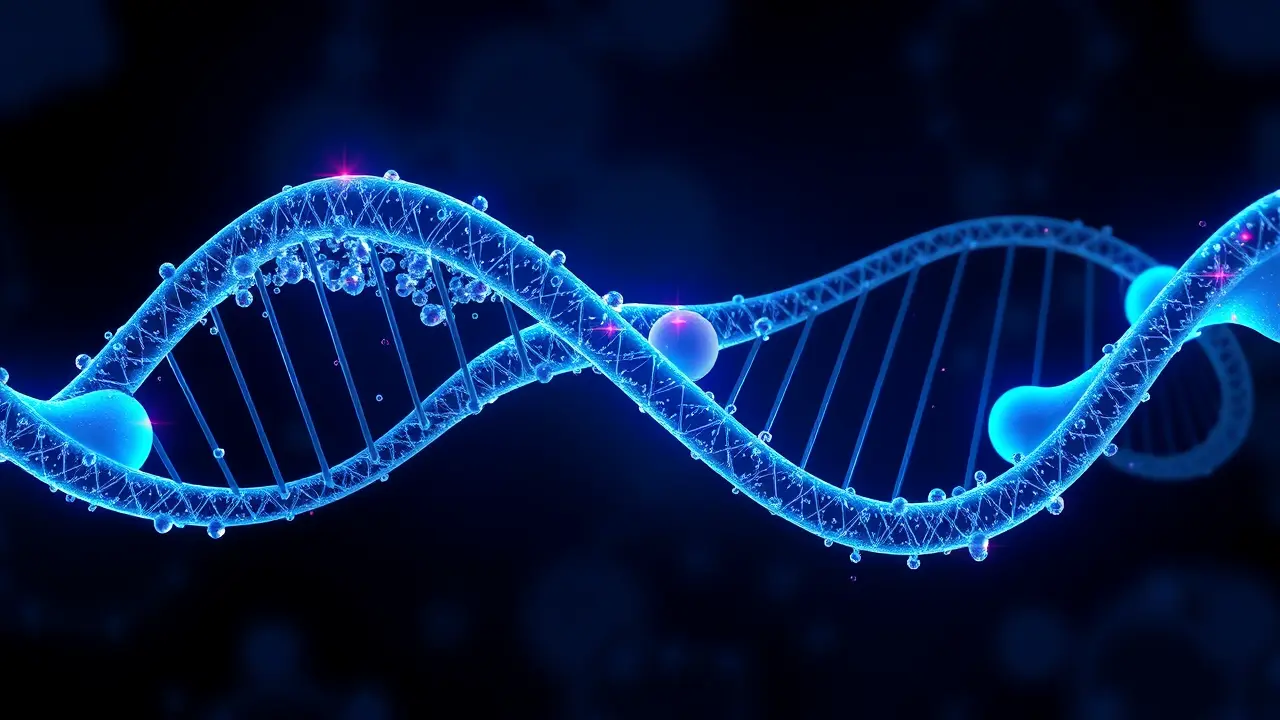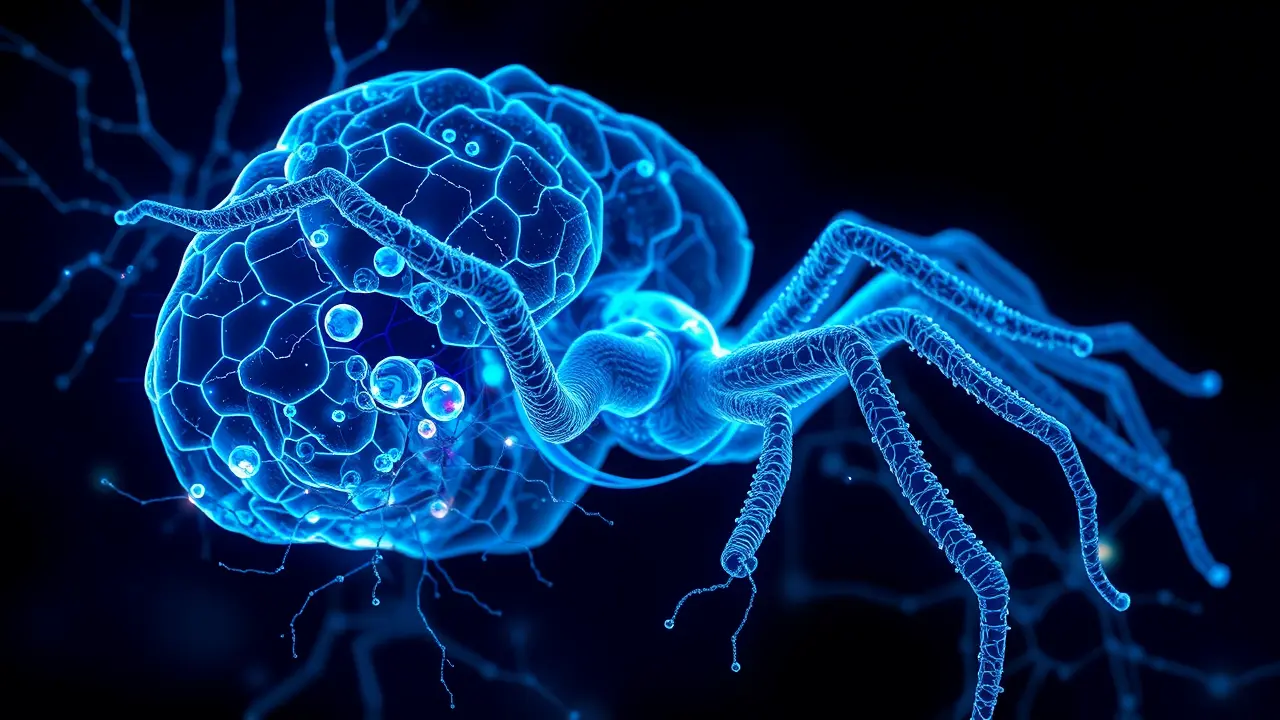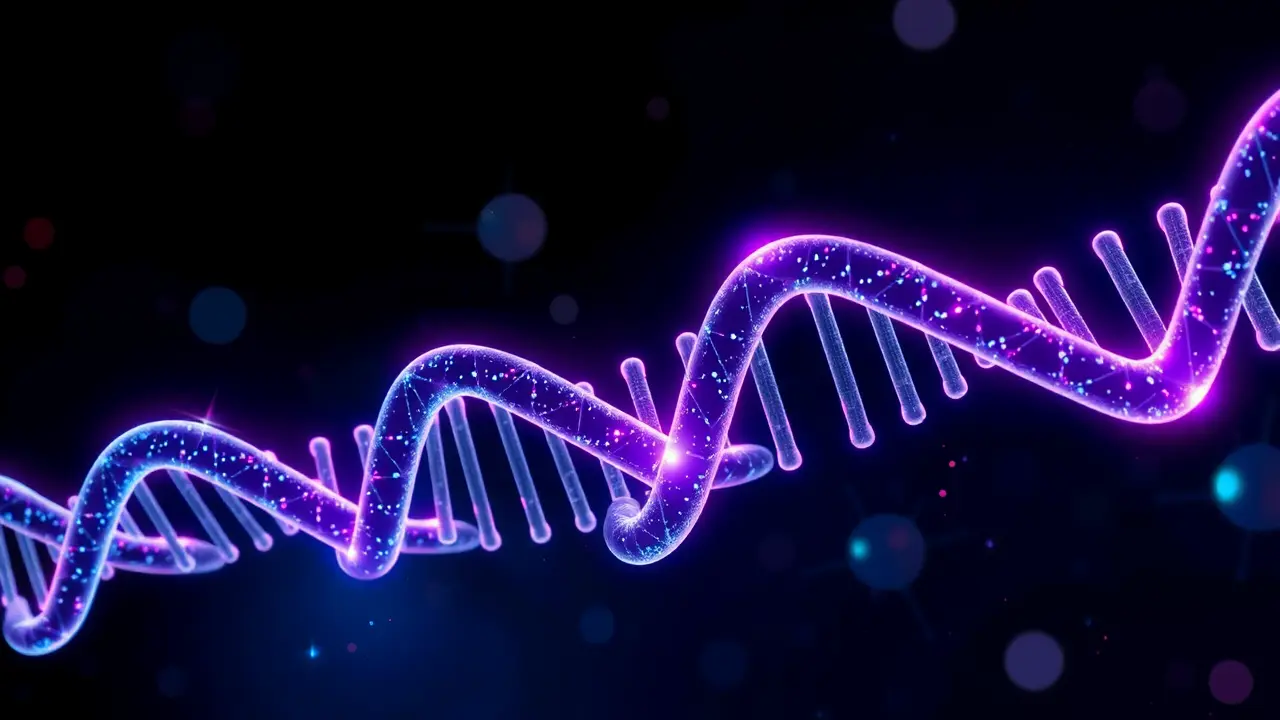
SciencemedicineGenetic Therapies
A hidden blood molecule may hold the secret to healthy aging and long life
KE
Kevin White
3 days ago7 min read
In a discovery that feels ripped from the pages of a science fiction novel, researchers have pinpointed a single blood molecule, CtBP2, that appears to function as a master conductor for the symphony of human aging. This isn't merely about finding another biomarker associated with getting older; this is about identifying a fundamental regulatory switch that seems to govern the metabolic tempo of our entire biological system.Think of CtBP2 not as a passive passenger in our bloodstream, but as the chief operating officer of cellular metabolism, a protein that dictates how efficiently our cells process energy, repair damage, and ultimately, determine our physiological age. The implications are staggering, painting a future where a simple blood test could reveal your body's true biological age, stripping away the superficial metrics of birthdays and offering a genuine, molecular report card on your health.The data is compellingly clear: individuals blessed with higher circulating levels of CtBP2 consistently demonstrate the hallmarks of extended healthspans and are statistically overrepresented in centenarian studies, their bodies seemingly resistant to the ravages of time. Conversely, lower levels are a grim harbinger, tightly correlated with accelerated aging, metabolic dysfunction like type 2 diabetes, and a precipitous decline into frailty.This positions CtBP2 not just as a marker, but as a potential active player—a lever we might one day learn to pull. The research, emerging from a confluence of longitudinal human studies and sophisticated animal models, suggests that CtBP2's role is systemic.It doesn't just influence one organ; it creates a feedback loop that synchronizes aging across the entire organism, linking the health of your liver to the resilience of your neurons. This challenges the older, more fragmented view of aging as a series of independent system failures, proposing instead a unified theory governed by central regulators.For scientists in the burgeoning field of gerontology, this is the holy grail. The quest has long been to move beyond treating age-related diseases one by one—Alzheimer's, cardiovascular disease, cancer—and instead target the root cause: the aging process itself.CtBP2 now presents a tantalizingly tangible target for a new class of therapeutics, from gene therapies designed to boost its expression to small-molecule drugs that mimic its function. The ethical landscape, however, is a minefield waiting to be navigated.Imagine a world where health insurers demand your 'CtBP2 score' or employers screen for 'biological age' during hiring. The socio-economic divides could deepen into biological castes, where the wealthy have access to longevity-enhancing treatments that further extend their healthy lives, creating a new form of inequality.Furthermore, the very definition of a human lifespan is up for debate; are we engineering a future where 120-year lifespans become the norm, and if so, what are the planetary and societal consequences of such a demographic shift? The work on CtBP2 sits at the thrilling, terrifying intersection of CRISPR gene-editing, AI-driven drug discovery, and precision medicine, representing a paradigm shift from reactive healthcare to proactive human enhancement. It forces us to ask not just if we can live longer, but what kind of life we are building, and who gets to live it. The molecule may be hidden in our blood, but the future it unveils is now starkly visible, demanding a global conversation about the kind of world we want to grow old in—or perhaps, not grow old in at all.
#lead focus news
#CtBP2
#aging
#longevity
#blood test
#metabolism
#health biomarker
Stay Informed. Act Smarter.
Get weekly highlights, major headlines, and expert insights — then put your knowledge to work in our live prediction markets.
Related News
© 2025 Outpoll Service LTD. All rights reserved.





